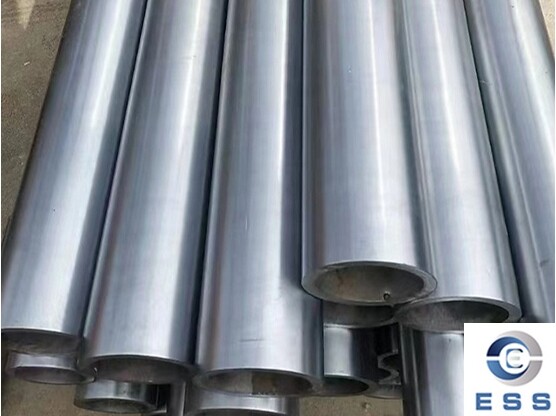
In industrial applications, precision
tube is often used in key areas such as hydraulic systems, mechanical
processing, and chemical equipment, and their anti-corrosion performance
directly affects the reliability and service life of the equipment. Coating
anti-corrosion is an effective means of protection that can significantly
improve the corrosion resistance and durability of precision tubes.
Common coating anti-corrosion materials
1. Epoxy powder coating
Epoxy powder coating has excellent adhesion
and corrosion resistance and can form a solid protective film. It is often used
for the outer wall anti-corrosion of precision tubes, especially in occasions
where higher anti-corrosion performance is required.
2. Polyethylene (PE) coating
Polyethylene (PE) coating has excellent
water resistance, low temperature resistance and impact resistance, and is
suitable for various harsh environments. It is widely used in the
anti-corrosion treatment of seamless
steel pipe, precision tube and carbon
steel pipe, especially in situations where long-term exposure to outdoor or
humid environments is required.
3. Polypropylene (PP) coating
Polypropylene (PP) coating has good
chemical corrosion resistance and mechanical strength. It is often used in hydraulic
tubes and precision tubes. It is suitable for some occasions with high
tolerance requirements for chemical media.
4. Polyurethane (PU) coating
Polyurethane (PU) coating has high
hardness, good wear resistance and good flexibility, and can adapt to the
deformation and vibration of steel pipes. It is often used for corrosion
protection of steel pipes that require high wear resistance and flexibility.
5. Epoxy resin coating
Epoxy resin coating has strong adhesion,
tough paint film, good gloss, soil corrosion resistance, water resistance and
oil resistance. It is suitable for corrosion protection of steel pipes in
various soils and humid environments.
Construction steps of coating corrosion
protection
1. Surface treatment of steel pipes
Before coating corrosion protection, the
surface of the steel pipe must be thoroughly cleaned to remove impurities such
as oil, rust, and oxide scale. Common surface treatment methods include
sandblasting, mechanical cleaning, and chemical cleaning.
2. Coating ratio and stirring
According to the type and requirements of
the selected coating, the correct ratio and stirring are carried out to ensure
that the coating is uniform and has no precipitation.
3. Coating construction
Use appropriate coating process parameters,
such as spraying pressure, spraying speed, coating thickness, etc., to ensure
that the coating is uniform, without missing coating, no sag and other defects.
You can choose to apply by hand brushing, spraying or dipping as needed.
4. Coating inspection and repair
Inspect the coating quality to ensure that
the coating thickness, adhesion and other performance indicators meet the
requirements. If the coating is found to be defective or damaged, it should be
repaired in time.
Precautions for coating anti-corrosion
Coating anti-corrosion has the advantages
of simple construction, low cost and good anti-corrosion effect. It can
effectively isolate the steel pipe from the contact with the corrosive medium
and extend the service life of the steel pipe. However, you should also pay
attention to the use method during use. The following are relevant precautions:
1. When selecting coating materials, you
should consider the use environment, expected life and cost of the steel pipe.
2. The coating construction should strictly
control the construction quality, strengthen quality inspection and
maintenance.
3. Regularly inspect and repair the coating
to ensure its long-term effectiveness.
Summary
In summary, there are many ways to prevent
corrosion of precision tube coatings, and the choice of coating materials and
construction methods needs to be considered comprehensively according to the
actual situation. Through effective coating anti-corrosion treatment, the
corrosion resistance and service life of precision tubes can be significantly
improved.













 Eastern Steel Manufacturing Co.,Ltd not only improve product production and sales services, but also provide additional value-added services. As long as you need, we can complete your specific needs together.
Eastern Steel Manufacturing Co.,Ltd not only improve product production and sales services, but also provide additional value-added services. As long as you need, we can complete your specific needs together.










